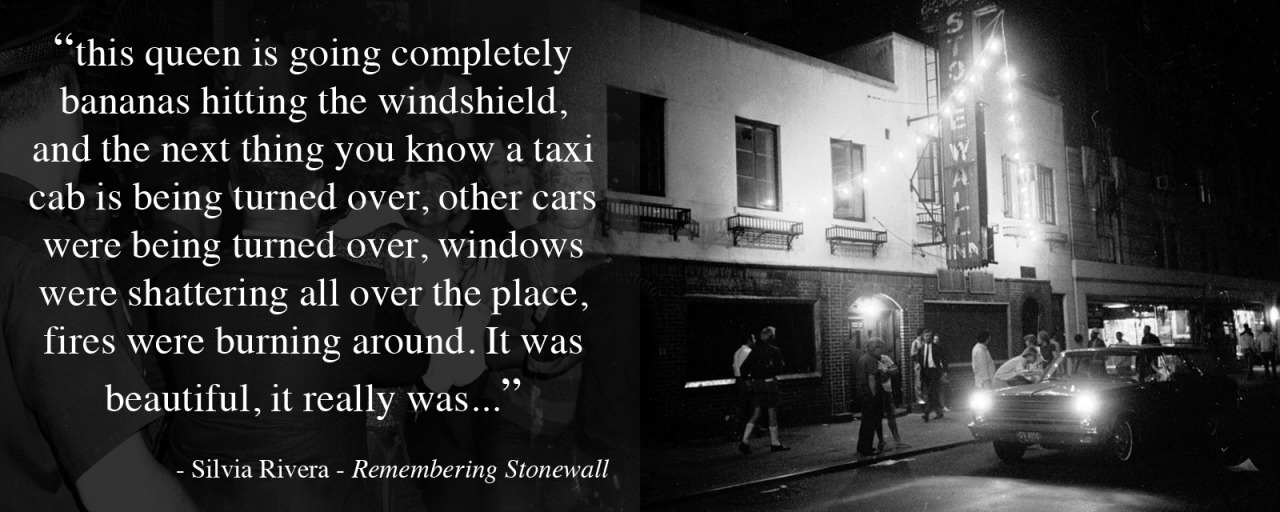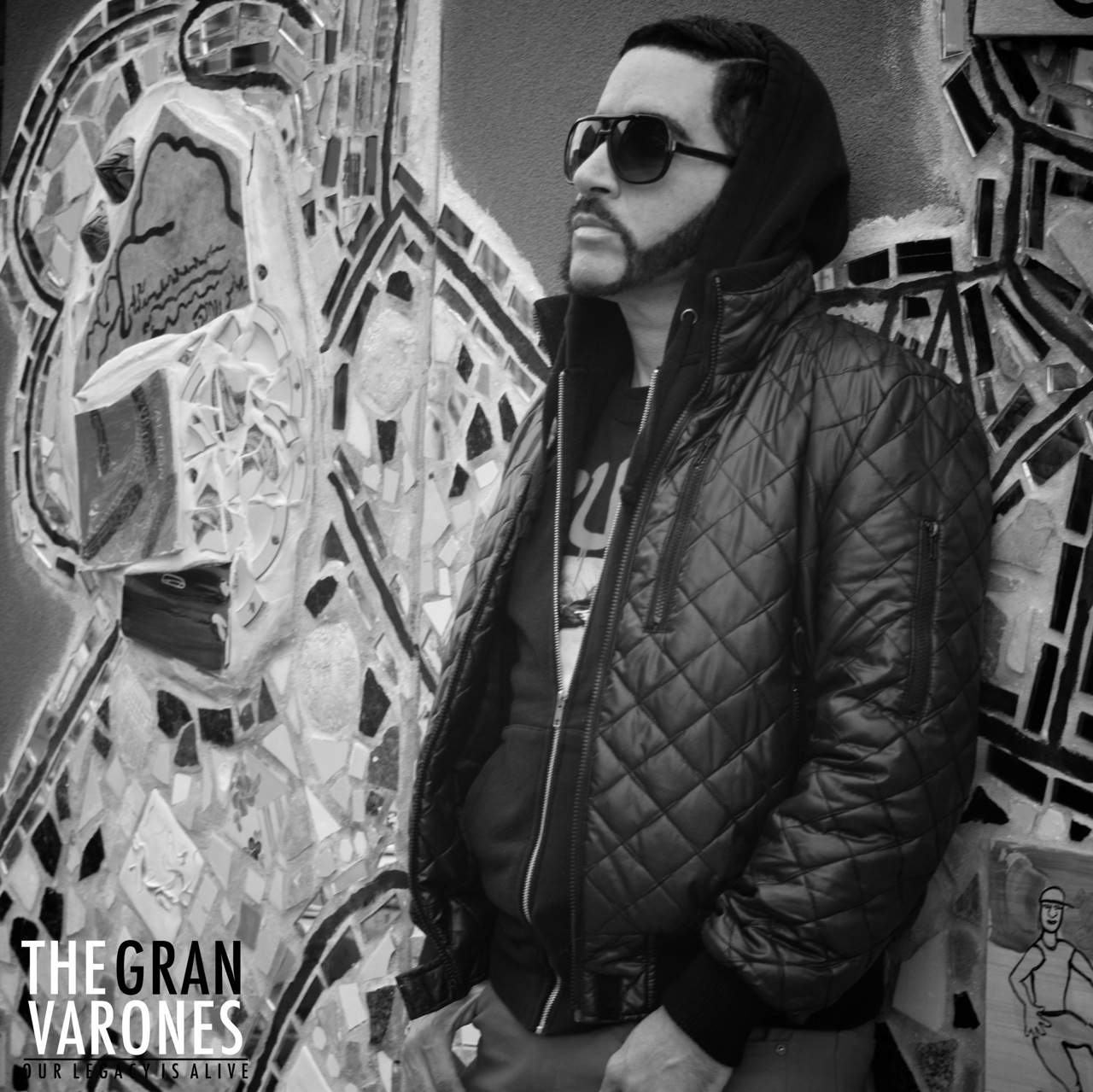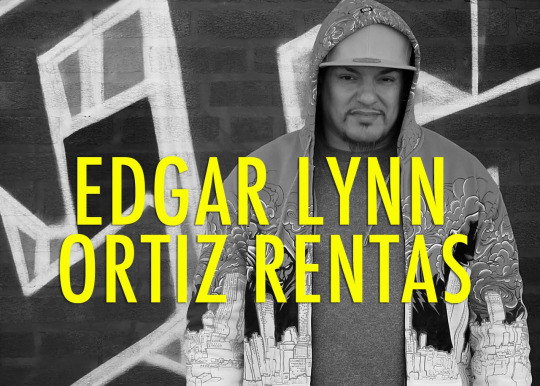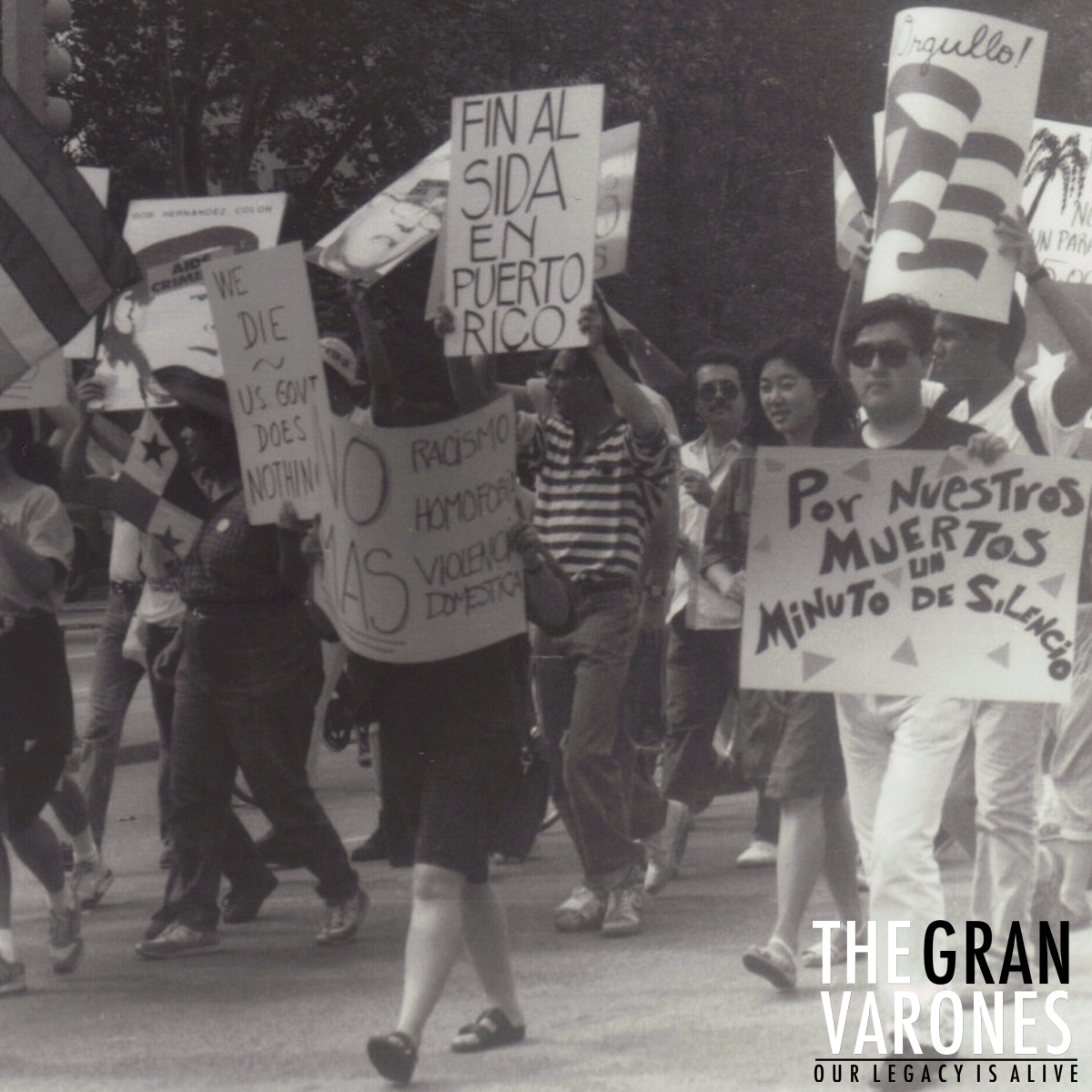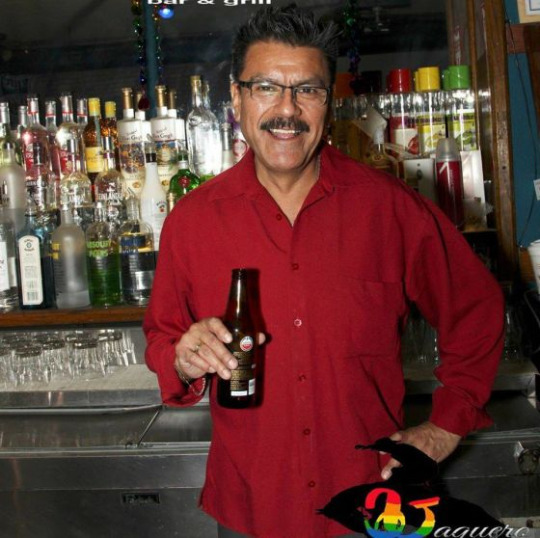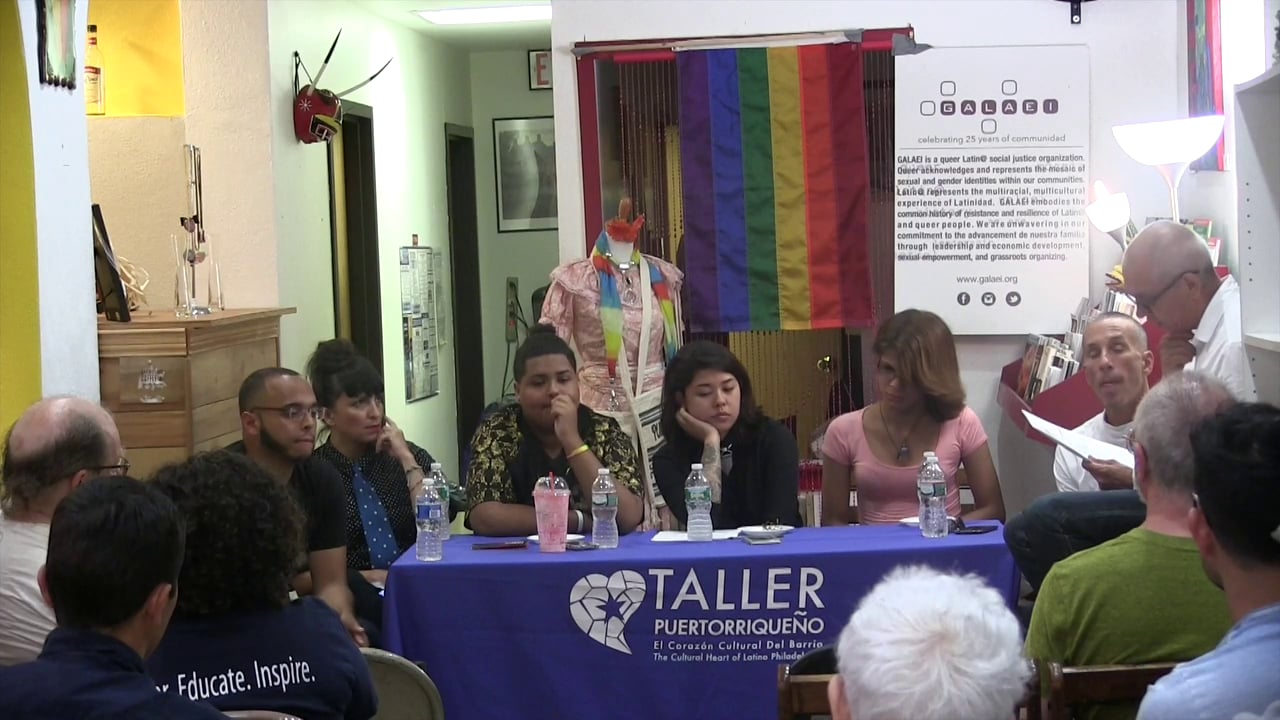angelito yvonne cruz shares his coming out story. check it out. it will make you smile. :)
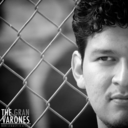
THE GRAN VARONES
The Gran Varones is a legacy project that uses video and photography to tell the stories of Latino & Afro-Latino Gay, Queer and Trans men. Our stories shine light on what being “out” and “proud” means to us, our families, and our communities.chyle, a lot of non-black queers have a lot of thoughts and opinions about how and when black people should protest. TWO UNARMED BLACK MEN HAVE BEEN PUBLICLY ASSASSINATED BY POLICE IN THE SAME AMOUNT OF DAYS and STILL some queers have the gaul to curb their mouths to say “protesting is not the answer. well let me share three things that "protesting” has provide us as queer and gay men.
1. because of the stonewall protest, WHICH WAS POLICE RIOT, you can dance and drink in a club without worrying about a police raid.
2. because queers yelled, screamed and protested the closing of bathhouses, you can suck dick at the baths.
3. many of us are ALIVE because queers protested THE MUTHA FUCKIN’ GOVERNMENT AND PHARMACEUTICAL COMPANIES for basic HIV treatment!
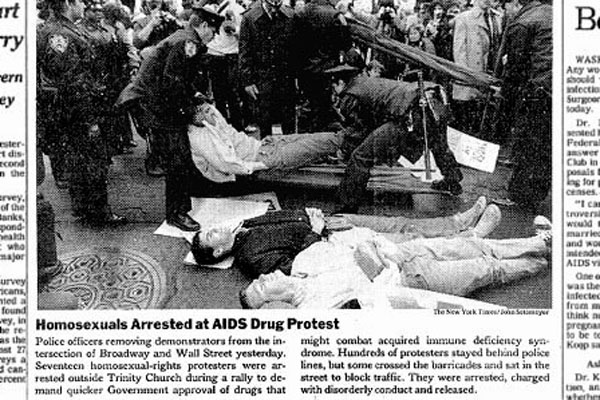
so the next time you are twerking your ass off in the club, remember that protests provided you that privilege.
the next time you are sucking dick at the bathhouse, remember that protests provided you that privilege.
the next time you and/or your friends, family, or partner is taking their LIFE SAVING HIV MEDS, remember that protests provided ALL OF US this privilege.
so before you go damning, judging and condemning those who protests against systematic oppression, try coming out of your ivory towers and into the streets in honor of the trans women, fags, queers, dykes, gays, drag queens, freaks and everyone who protested so that so you could shake your asses at pride. MANY OF THEM DIDN’T EVEN LIVE LONG ENOUGH TO ENJOY THE PRIVILEGES YOU TAKE FOR GRANTED.
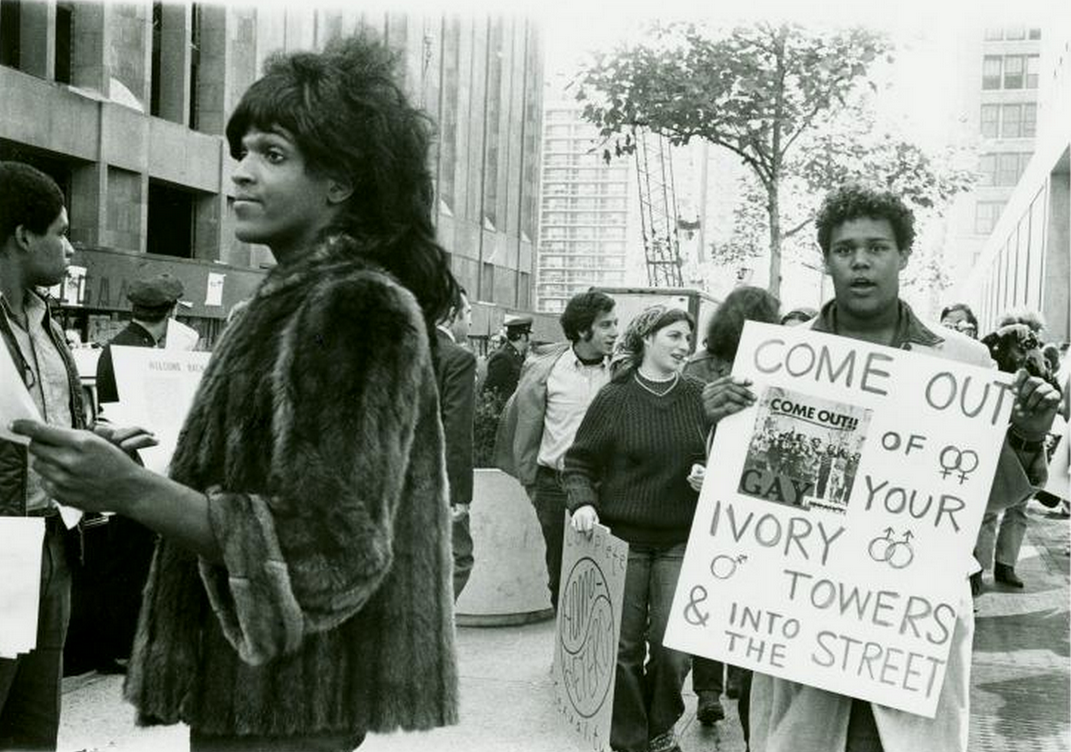
Louie: Thank you for coming to Philly to meet with me. I really appreciate it. I had wanted to ask you for a while to interview for the project but was afraid.
Peter: Why? I love the project. I am glad to do this. I have so many stories.
Louie: Let’s start with you. Tell me a little about yourself.
Peter: I’m from New York originally. I grew up partly in Glen Clove, Long Island and Delaware. I went to high school in Delaware. I came out…no I didn’t come out, my mother pulled me “out.” A cousin of mine moved from Puerto Rico to North Philly. He passed away, his name was Alfredo. Alfredo was a big queen. I always knew he was a big queen, ya know just “under cover.” Well honey, he got drunk one night and came home to my cousin’s house and was telling my cousin he met these guys and blah, blah, blah. Well they told my stepdad. So my mom told me and I am laughing because I thought it was funny. Mommy goes, she says to me in Spanish, “Don’t laugh about his situation because you into that sort of lifestyle too.” I was 18 at the time and I said “Oh. Well this is my signal to come out.” So eventually I left high school and I came out. I was like “Fuck It. I am not going to be “straight.” I’m not going to pretend.” Because I was pretending. The whole time, I dated girls and that stuff. I did that more for my stepdad than my mom because of that whole machismo thing. So I came out. I said, “My mother knows so I am cool.” Mommy goes “You don’t think I knew? I knew ever since you were little. I was just waiting for you to tell me.” So I don’t have a traditional “coming out” story. I didn’t tell my mom, she told me.
Louie: So what originally brought you to Philly?
Peter: I met this guy who had the same name as the singer Bobby Brown. He was this black dude who lived in North Philly. We met at Smarts* and we started communicating on the phone, ya know it was 80s. he “supposedly” loved me and I “loved” him so I moved to Philly. I didn’t even give my notice. I up and left, I disappeared. My mother didn’t even know where I was for a whole month ‘cuz I was in love. I was 21 at the time and just started going to the clubs.
Louie: Were there other gay Latinos?
Peter: It was me and miss David. Then I met a few other ones. I met Alexis, Pedro, he had long hair and liked to vogue. I met all those Puerto Ricans. But there was a divide because I hung around a whole bunch of black kids. They (the Latino queens) didn’t like because they thought I was trying to be “black.” I was just being me. I got along with everybody but they were ones trying to throw me shade. It was hard at first because you want to be around other Puerto Ricans that were gay and you want to be included in that community because they are not many of us began of the struggle we have amongst ourselves as Latinos.
Louie: How did you get involved in the Ballroom scene?
Peter: The balls, I was introduced to in 1988. I saw people Voguing and carrying on and I didn’t know what it was. And I was like “I wanna do that!” I started learning it by going to the Nile*. It was interesting and I caught on real quick. My first House was the House of Prestige. I was the only Puerto Rican in that House. My category was hair affair and old way. The ballroom was picking up here in Philly. Later I joined the House of Africa. Tracy Africa’s house opened a chapter here in Philly. I did Butch Queen Up In Drags for their House.
Louie: So you are in Delaware now. Why did you move back there and what is gay life out there?
Peter: talk about the gays in Delaware. Let’s talk about the Latino gays in Delaware. There’s hardly none. And the few there that they have are whack. It’s truthful. Then they have the nerve to give you shade and I’m like “Gurl, we should stick together.” Gay life in Delaware is very limited. Philly gay life is “OK” now but Philly back in the day was fun. There was a golden era up to ’94. They have all these new clubs but they are geared to the white gays. They don’t gear to us. Even New York has changed. Nothing’s the same.
Peter DaVilla-Montes, Delaware
Interviewed & Photographed by: Louie A. Ortiz-Fonseca
*Smarts & The Nile were gay night clubs in Philadelphia that had a large black following. Both clubs were closed by the mid-90’s.
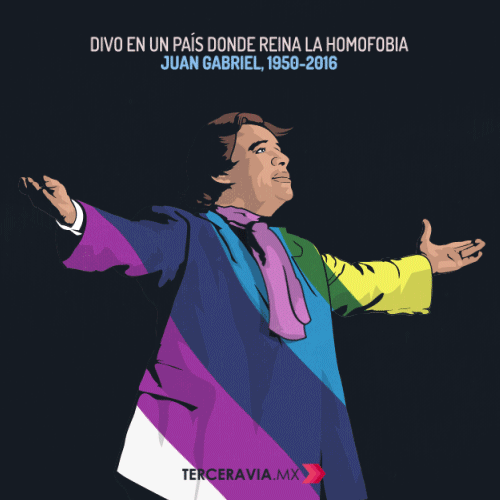
you existed for all of the boys who knew but knew that obvious questions were never necessary.
from all of the boys like us who wore our pride unapologetically like pretty accessories - we thank you.
sing in peace, juanga.
check out our latest video profile featuring edgar from philly.
julio mangual aka lady labelle is one of philadelphia’s most beloved afro-boricua drag queens. he has one of the first queens to organize drag shows in the heart of north philly - a world away from philly’s gayborhood - in the early 1990s. lady labelle continues to break down barriers by performing in bars and clubs that my uncle, my bother and aunts go to.
watch our latest gran varones profile video as julio aka lady label shares their story.
RECALLING ONE OF NORTH PHILLY’S FIRST LATINX QUEER NIGHTS
Louie: So how are you holding up?
Ricky: It’s been hard. I knew many people lost in the attack at Pulse. I knew them through my days as a club promoter. Ya know, when we go clubbing we go everywhere. That’s why I Travesura was important to me.
Louie: Yes, Travesura was lit! One of the first Latin Queer nights in North Philly. In a North Philly straight bar too!
Ricky: We had to. Latinos like you and me are able to go downtown and be in those other spaces. We had to learn that shit because how else would we have survived the 90’s. We old, gurl. (LOL) But seriously, I saw how they looked at other Latinos from North Philly. They looked at them with disgust because they didn’t “fit” in with the downtown culture. They didn’t want to interact act with them or even acknowledge them. That pissed me off.
Louie: Is that what inspired you to start Travesura?
Ricky: Well actually, it was started by DJ Chill Will and DJ Who? They started having Travesura nights at some bar in North Philly. After maybe like the first two events, they reached out to me to be the face of it. I had just moved back to Philly and was getting my life together but I agreed. I knew it would help build a stronger connection for and with the Latino gay community. I also wanted to be a part of a something that would accept all of us no matter how we presented or how we acted. And believe me, those nights at Travesura were lit as hell. People fought and argued. There was enough drama to go around but it brought Latinos from South Philly up to North Philly. And you saw Latino gays meeting other Latino gays for the first time. A lot of them are still friends. Soon we took the party to Delaware because just like Philly, there wasn’t a place for Latino gays there. It was like over 5 years ago since we stopped but I remember it like it was yesterday.
foto courtesy of Ricardo Melendez. Travesura Latino Queer Night in Philly
Louie: Do you think you will return to promoting Latin
nights again?
Ricky: Yes. I actually just spoke to Lady LaBelle last week because she is trying to do Latin Nights with Drag Shows in North Philly. She wants to team up. Now it is even more important that we do this, ya know. We need it. There is a disconnect in our community now. Everyone just stays in North Philly and go to straight bars with their cousins. Or they have house parties. Yeah, we go to Woody’s on Thursdays for their Latin night but you won’t hear our music. It’s mainly English music. So me Lady LaBelle talked and decided to put aside our differences and try to make this work. She and I are both crazy but we are both dedicated to our community. So I will keep you updated.
foto courtesy of Ricardo Melendez. Travesura Latino Queer Night in Philly
someone once said that the shortest distance between life and death was AIDS. this shit was hella true before the introduction of antiretroviral therapy (HIV treatment) in the mid 1990’s.
sadly, now the quickest way for build an empire for HIV service agencies is to say that they struggle and ideas of black & latino gay men and black & latina trans women.
these same agencies remain silent as black and latino people living with HIV continue to be criminalized.
these same agencies continue to get increasingly more money even as 1 in 2 black gay men and 1 and 4 latino gay men are projected to be diagnosed with HIV in their lifetimes.
despite their failures, these agencies continue to make a profit.
yesterday, marked the 35th anniversary the first published report by the centers for disease control (CDC) of a mysterious disease that would later become known as AIDS. while we have witnessed profound breakthroughs in treatment, black, latino and poor people continue to disproportionately impacted even as HIV service agencies have grown by leaps and bounds. THIS CANNOT CONTINUE.
remember to remember that HIV IS NOT A CRIME. AIDS PROFITEERING IS.
Louie: Finally chyle! Took you forever to do this?
Jonathan: I know. I have been so busy.
Louie: Yes, I know. I see you doing thangs. I am so, so proud of you.
Jonathan: Thank you.
Louie: So let’s get started. Where did you grow up?
Jonathan: I was born in NYC and when my mom split with my dad, we moved here with my step-father. I grew up in North Philly. It was challenging knowing at a young age that you were gay. I knew when I was 5. So i I used to get picked on about my weight, the way I talked, the way I walked, any little thing. All the way from elementary school to high school, were challenging years. I faced a lot of different things.
Louie: How did you know at age 5 you were gay?
Jonathan: I just had a feeling inside. I used to always hang out with the girls. I never had a connection with the boys. I used to try and force myself to play sports and try to be “macho” but I knew deep down inside, that wasn’t me. And when I was acting like somebody else, I didn’t feel like myself. It’s challenging at age 5 to think that about yourself when you don’t even know yourself. Ya know, growing up in this crazy world, we are “supposed” to act a certain way and your parents are telling you, “Stand up straight.” “Walk right!” “Stop sayin’ it like that.” You get structured to be this alpha male and you know deep down inside that’s not who you are. I had those moments when I used to battle myself about who i am and who i wanted to be.
Louie: Have you found an answer?
Jonathan: My junior year of high school. I developed a circle of friends that were very tight-knit and they introduced me to the gay scene was I was 18. Before that it was foreign. I didn’t know what it was like, what a gay club was like. At first, it was very uncomfortable seeing guys dance together or touch each other in certain ways. I never knew what that felt. I had visions in my head but I never saw it live in the flesh. So I said (to myself), “Let me develop more comfortability around this because this is the kind of environment i want to be in.”
Louie: How is Jonathan today different from that young Jonathan?
Jonathan: Wow, great questions. Jonathan now is a lot more mature and really starting to come into his own. Back then, I was lost and very insecure. I had a lot of issues around trying to define who I was really was, what kind of man I wanted to be. How do I fit into this world? What do I bring to the table? I still struggle with certain aspects of that currently but it is not as heavy as before. I was so scared because coming out as gay, I didn’t know who to turn to. I had so many questions like how do I moved forward in life as a gay man? Now, i am so comfortable with it, I am so open with it. I am very proud to be gay.
Jonathan, Philadelphia
Interviewed and Photographed by: Louie A. Ortiz-Fonseca
Louie: So you’re originally from some place in New York I have never heard of (LOL) what is the craziest experience you have had in Philadelphia?
Alejandro: The craziest experience I’ve had in Philadelphia? I briefly befriended a young homeless man in center city. I’d seen him playing a guitar on the sidewalk one day, and a few days later the guitar was gone. He said it been stolen. I spent a late night hanging out with him once, and at some point another homeless youth confronted him about something and lunged at a bunch of us with a switchblade. It was a whole different side of the city that I’ve ever seen.
Louie: So what was it like growing up in your family?
Alejandro: I had a great stretch of happy childhood at first. My parents met while working in the dining room of a hotel in the Hudson Valley, and when I was born, they lived on the second floor of another immigrant family’s house. My happiest memories are from living in a trailer that my parents rented afterwards. I loved the Muppets, so my parents bought me the “Muppet Christmas” record and for Halloween, they painstakingly carved Miss Piggy and Kermit Jack-O-Lanterns for me. As I got closer to adolescence, my parents’ marriage unraveled, and my dad started spending a lot of time elsewhere. He’d worked his way up to Maitre D at the hotel, which was good, but he worked nights, weekends, and holidays my whole childhood. There’s a lot I wish I could’ve learned from him. People respected him. My mom went to college as they were getting divorced, and she raised my sister and me as she got her bachelors, and her masters, and then started teaching English as a second language. When I came out as gay in my late teens, both of my parents were very supportive, though. They’re good people. Now that I’m an adult, I can see what qualities of my own come from them. For better or for worse I’m their creation in many ways.
Louie: You invited me to one of your stand-up performances and you were fuckin’ hilarious. Have you always known you were going to be a comedian?
Alejandro: I didn’t always know I would be a comedian, but I did always know I would be an artist, and I’ve always loved comedy. Self-knowledge is harder to come by than some people think. The only thing I’ve really ever known from the beginning is that I’m not like other people, and the rest of my life has been about trying to find my place in the world. What I love about comedy is that it gives people the freedom to talk about what this life is really like.
Alejandro Morales, Philadelphia by way of Ellenville, New York
Interviewed and Photographed by: Louie A. Ortiz-Fonseca
Jose Antonio Casco—owner of Antronio’s in Berwyn, Illinois—died April 3 from complications following a head injury incurred at home. He was 59.
Jerry Nunn, writer and photographer for this publication and others, relayed Casco’s death to Windy City Times.
Casco was born June 13, 1957, in Puebla City, Mexico. He emigrated here with his parents and siblings when he was a young child and spent the rest of his childhood in Chicago’s Little Village neighborhood.
Prior to opening Antronio’s, Casco owned Chesterfield’s in the McKinley Park neighborhood on the Southwest Side of Chicago for more than 10 years. He also briefly worked at Mario’s on Chicago’s South Side.
Antronio’s is a combination community center/Mexican restaurant by day and Latin gay bar by night, and was the first gay bar in Berwyn. Casco named the bar Antronio’s by combining the Mexican slang term “antro,” meaning “hip bar,” and his middle name.
Casco was also a U.S. Army veteran and spent most of his time stationed in Germany.
Casco is survived by his fiance, Ramiro Lopez. They were slated to be married in two weeks and were together for 18 years. He’s also survived by his brother Armando Casco, sisters Gloria Chavez, Angelica Carrera and Guadalupe Velasquez as well as many nieces and nephews.
“Tio Tono was the father figure of the Casco family,” said niece Janet Alvarado in a statement from the entire family. “He was the responsible one, the one who took care of family affairs and the one my mom and aunts ran to when they were in trouble. Most of all though, he was so full of life in every way. He lit up family parties, gatherings, events, anything. There wasn’t a moment when he wasn’t cracking a joke, being witty, or saying the most hilarious comments. Even now, if you look on his Facebook page during this terrible time the things people remember most is his personality and his sense of humor, sometimes very inappropriate but always so funny.
"However, he was also a man that you could sit for hours with and have intimate conversations with, tell him your secrets, tell him your worries all without fear that he would ever judge you. He was a bar owner by trait but what made him so special is that people trusted him when they needed a beer and someone to confide in. He steered many of us in the right path, talked to us when we felt our own parents didn’t understand and advised us when we needed perspective beyond our years. He was wise, loving, and truly a beautiful man. Our family feels very cheated because we need him here and without him life seems so much duller.”
“Antonio was always willing to lend a hand to anyone in need,” said close friend Trini Gonzalez. “He left a legacy of pride of loving who you are. He loved and lived life to its fullest. Antonio will be missed by everyone who knew him.”
“He was very easy to work with when he was running ads in Nightspots Magazine and paid promptly,” said Nunn. “I did health-survey interviews for the CDC at Chesterfield’s and he was very cooperative with the mission of helping the community. He loved to cook and donated food to fundraisers like the Queer Prom. He was an incredibly hard worker and his goal was to keep his venue Antronio’s open around the clock to serve food seven days a week as well as bartend at night. The margaritas he made from scratch were the best in Berwyn.”
“Antonio was not only a friend he was like family to me,” said long-time friend Carlos Hernandez. “There aren’t enough words one can explain about how kind, caring and loving an individual he was to many people.”
“Jose was always willing to lend a helping hand to those in need including providing a location for HIV testing when he owned Chesterfield’s,” said Aurora Pineda, a longtime community activist. “I remember him being welcoming to everyone who came to Antronio’s including myself. Jose created a safe space for everyone in the LGBT community at Antronio’s, especially Latino gay men. He was really good about telling younger people what it was like to be gay and Latino when he was young. He was a very generous, genuine person who gave a lot to the community and it’s so sad to hear that he died. We will miss his presence in the Latino LGBT community in the Chicago area.”
“Jose was a pillar of the Latino LGBTQ community,” said community organizer Emmanuel Garcia. “As an out Latino business owner, Jose was a trailblazer who created necessary spaces for our community to meet, dance and be unapologetic. He was generous with his resources. I counted on Jose’s support on a number of initiatives, including Queer Prom and the RAICES campaign to address homophobia and transphobia in the western suburbs. The community will miss him very much.”
In lieu of flowers, the family asks that people donate to the GoFundMe campaign. To contribute to the fundraising efforts. About $750 of the $10,000 total has been raised so far.
The wake/memorial service will be held April 6 at 3-9 p.m. at Damar Kaminski Funeral Home, 7861 S. 88th Ave., Justice, Illinois. He will be buried next to his mother, Julia Casco, at Evergreen Cemetery 3401 W. 87th St., Evergreen Park, Illlinois, the following day.
“Some of us are presently in that one in four and know first hand that the epidemic is being driven by racism, homophobia, poverty and stigma. Some of us know that we bear the great burden of HIV infection in our community. Unfortunately, only some us know that these statistics DO NOT mean that we have failed each other or that we have not been doing our best to sustain ourselves as Latino MSM. What these statistics mean is that the system and the prevention organizations charged with reaching us have failed us on many levels.”
Miss Lolita Lebròn is what revolutionary Puerto Ricans are made of. Doña Lolita, as she is affectionately known, became a nationalist hero in 1954 when she organized an assault on the U.S. Congress with her comrades Rafael Cancel Miranda, Irving Flores and Andres Figueroa Cordero.
On March 1, 1954, Lolita and her three comrades calmly entered the Capitol, walked through the lobby and when Lebròn’s group reached the visitor’s gallery above the the chamber in House, Lolita then gave the order, the Nationalists unfurled the Puerto Rican flag, Lolita stood up and shouted “Que Viva Puerto Rico Libre!” and within seconds they opened fire on the U.S. Congress. Five congressmen were wounded in the attack. All four Nationalists were immediately arrested.
Upon being arrested, Lebròn yelled “I did not come to kill anyone, I can to die for Puerto Rico!” The four were soon convicted and given life sentences.
During the social and political upsurge of the 1960s and 1970s in Puerto Rico and the United States, more and more people raised the demand for the immediate release of the four as political prisoners. The campaign received international support in part because of the diplomatic and political support of revolutionary Cuba. The pressure paid off in 1979, when President Jimmy Carter granted amnesty to Lolita Lebron, and the other nationalists, after spending 24 years in prison.
After her release, she continued to be active in the independence called and participated in the protests again the the United States Navy’s presence in Vieques.
Doña Lolita, died on August 1, 2010 at age 90.
Louie: So when did you know you were gay?
Danny: Always. Since my first memory, my first attraction, my first crush. I guess I just remember like, you know you are in kindergarten and little girls get crushes on little boys, I was like “why am I crushing on this little boy?” Like little Maria was passing me notes talkin’ about “Do you like me?” I was taught to say “yes” to a girl, so I checked “yes,” But I was really looking at little Edwin over here. (LOL)
In the fourth grade, we had safety patrols, so we were on this trip to Dutch Wonderland in Lancaster and my partner was this other Spanish kid who I was crushing on. I won’t say his name but we were friends and we decided we were going to be partners for the day and we had to hold hands and I was so hype that I got to hold this kid’s hand. I tried hold his hand on the bus. I was like “I’m not letting you go” (LOL)
Louie: We you always okay with it, knowing you were gay?
Danny: No because, the way my family set up, my sister has a different father and she has another set of siblings. My sister had a brother who was also gay and I used to hear the family talk about him like, I don’t like to use the word, but of course they would use the word, “faggot.” They would talk about how feminine he is and that’s how my dad taught me being gay was “wrong.” So of course I had already had those feelings [attractions] way before that but hearing the way my family spoke of this one dude, I was like alright “this is not something I can tell people and this is something I am supposed to hide.”
When my dad had the birds and the bees talk with me it would always be about females and “oh you gotta look at their tits and look she got a fat ass.” And I was “yeah, ok.” It never really resonated with me but I felt like, alright, I’ll take your word for it. It doesn’t do anything for me but I guess I am so supposed to do that so I am gonna look.
Louie: So what was it like when you came out?
Danny: I got kicked out my house every other week for being gay. It would be like “If you are living under my roof, you can’t live that life.” Alright, fine. You know, once you leave [Vineland], you see the big city. In New York, no one cares what you do. You can have purple hair, purple eyes and blue skin and people wouldn’t look at you twice people are used to seeing that and more over there. So I am pretty sure that two guys holding hands was nothing to them. So every time I would get kicked out, I would hop on a bus to Atlantic City and then from Atlantic City to New York and I would go to The Village. I would see the craziest shit and I would be like “Wow, people don’t even give it a second look over here, why is it such a big deal over there [Vineland]? So every time I would get kicked out, I would stay longer and longer in New York until I just stayed there.
Louie: How old were you?
Danny: I’m 29 now and this was like in 2002.
Louie: What is your relationship with family now?
Danny: With my parents, it’s one of those taboo subjects. Yeah, they know I’m gay but that is something we don’t talk about. They don’t ask “Oh how are you doing? Have you met someone? Have been on a date recently?” or “Congratulations, you just got the right to marry. Do you plan to get married?” It’s more like “How was your day? and “How’s work?” That’s it. My sisters are great with it. They will ask me “Yo, what’s up? You haven’t brought anyone around in 4 years. What’s going on with you? Why are you still single?” My brother, we don’t talk about it too much, but I know if I were to meet somebody, he would have no problem accepting that person.
Louie: Does this impact you’re being in relationships or dating?
Danny: It does because if I am with somebody and we’re on a serious level, part of that is introducing that person to my family. I have introduced one or two people to my family who I thought were gonna stick around for a while. My parents were welcoming, they didn’t treat them any different but in my mind, I can’t bring anybody around my family who is not showing signs of longevity. If I am not sure about you, I am not gonna bring you around my family. I don’t wanna bring someone around my family and then the next day their gone. Then they [my family] ask “What happened to…? Well that’s gay people do.”
Louie: If you could tell 14 year old Danny anything, what would you tell him?
Danny: I would tell him, yeah, People are gonna knock you for who you are or who you would become, rather. Don’t let the words of people affect how you live your life and what you want to do with it. I can’t tell you how many opportunities were knocked out of my hand because I listened to people say “Oh you ain’t shit because you’re gay and you’re gonna come back here, you’re gonna be dying of AIDS and blah, blah, blah” And all that was in my head and I carried that with me for a long time. I’m not doing the best but I was doing well for myself I know many of the people who said those words are eating them right now.
Louie: Thank you.
Danny Molina, Vineland, New Jersey
Interviewed & Photographed by: Louie A. Ortiz-Fonseca
As part of En Blanco y Negro: Gay & Boricua, an exhibition of the artwork of José Luis Cortés, GALAEI and Taller Puertorriqueño are pleased to present a panel discussion on important issues affecting the LGBTQ Latino community.
The panel will look at, from different perspectives, their past, current and future directions. The topics addressed will include the intersectionalities of insider/outsider, invisibility, homophobia, resilience, migration, ethnicity, race, class, and gender, the impact of the HIV/AIDS epidemic, and the social and political organization of LGBTQ Latinos in the United States and Puerto Rico. This will be a public and open forum.
Panel participants include: José Luis Cortés, artist; Elicia Gonzales, Executive Director of GALAEI; Erika Guadalupe Núñes, artist and community organizer; Emmanuel Coreano, a youth member at GALAEI; Bella, a trans* identifying youth who is passionate about the Queer community; and Anthony Leon from The Gran Varones Project. David Acosta, AIDS activist, writer, cultural worker and current artistic director for Casa de Duende, will be the moderator.
